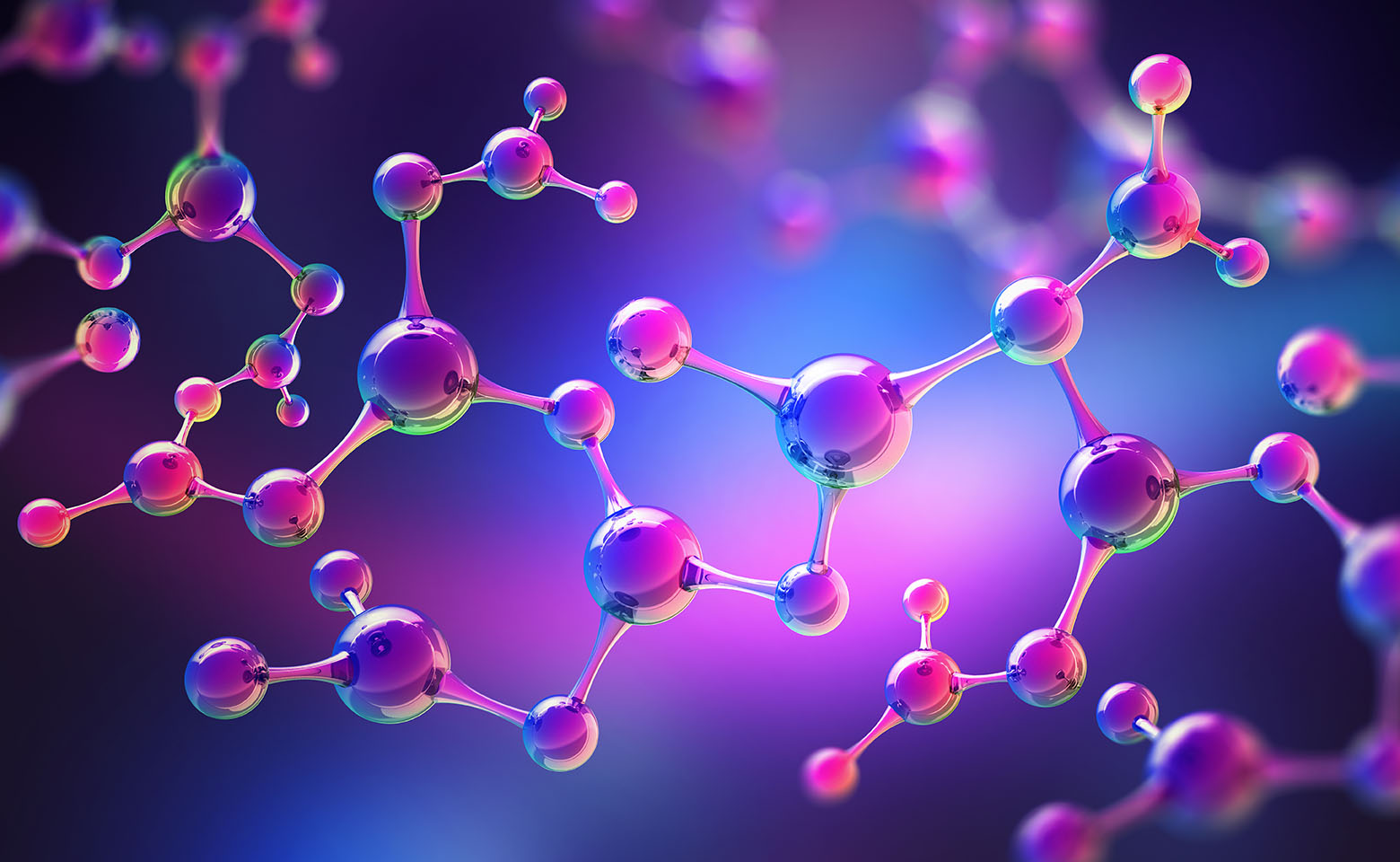

A molecule is the smallest unit of a substance that can exist on its own and retains all the chemical properties of that substance. It is made up of two or more atoms that are bonded together.
The atoms in a molecule are held together by chemical bonds. Chemical bonds are the forces that hold atoms together. There are three main types of chemical bonds: ionic bonds, covalent bonds, and metallic bonds.
Ionic bonds are formed when one atom donates an electron to another atom. The atom that donates the electron becomes a positively charged ion, and the atom that receives the electron becomes a negatively charged ion. The oppositely charged ions are attracted to each other, forming an ionic bond.
Covalent bonds are formed when two atoms share electrons. The shared electrons are attracted to the nuclei of both atoms, forming a covalent bond.
Metallic bonds are formed when metal atoms share their electrons with each other. The shared electrons form a "sea" of electrons that surrounds the metal atoms, holding them together.
The type of chemical bond that forms between two atoms depends on the electronegativity of the atoms. Electronegativity is a measure of how strongly an atom attracts electrons. Atoms with high electronegativity will tend to form ionic bonds with atoms with low electronegativity. Atoms with similar electronegativity will tend to form covalent bonds.
The air we breathe is made up of many different molecules, including oxygen, nitrogen, and carbon dioxide.

Noun: The smallest unit of a chemical compound that can exist independently and retains all the properties of that compound.
Adjective: Relating to or consisting of molecules.
Verb: To form into molecules.
The word "molecule" comes from the Latin word "molecula," which means "tiny mass." The Latin word "molecula" is derived from the diminutive form of the Latin word "moles," which means "mass.".
The word "molecule" was first used in English in the 17th century to describe the smallest unit of a chemical compound. The word was originally used to compare molecules to small masses, such as grains of sand.
What is a molecule?
Question:
Define a molecule and explain how molecules are formed in chemical reactions. Provide an example of a common molecule and describe its importance in everyday life.
Answer:
A molecule is a fundamental unit of a chemical compound composed of two or more atoms that are chemically bonded together. These atoms can be of the same element or different elements. Molecules are the building blocks of matter and play a crucial role in chemical reactions.
Molecules are formed through chemical reactions, where atoms combine or rearrange to create new compounds. Covalent bonds, where atoms share electrons, are a common way molecules are formed. For instance, when two hydrogen atoms and one oxygen atom share electrons, they form a water molecule (H2O).
Water (H2O) is a ubiquitous and essential molecule in everyday life. Its unique properties, like high surface tension and solvent capabilities, make it crucial for various biological and environmental processes. Water's ability to dissolve many substances facilitates metabolic reactions within cells and supports the transportation of nutrients in organisms. Additionally, water's high heat capacity helps regulate the temperature on Earth, making it a key component of our planet's climate system.
In summary, a molecule is a group of bonded atoms, and that form through chemical reactions. The water molecule is a prime example of a significant and widely used molecule due to its exceptional properties that support life and various natural processes.
Address
Developing Experts Limited
Exchange Street Buildings
35-37 Exchange Street
Norwich
NR2 1DP
UK
Phone
01603 273515
Email
hello@developingexperts.com
Copyright 2025 Developing Experts, All rights reserved.